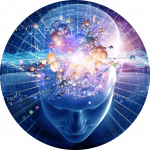Human evolution has dictated that males have only (relatively) recently become involved in childcare. The human brain is now six times larger than any other mammal of our body size. Unlike all other mammals, at birth, babies brains are not yet fully developed and so are incapable of survival alone for a significant period of time.
At the beginning of human evolution, mothers turned to other females for support in looking after their babies, while human fathers were out hunting and gathering — a bit like Liverpool today. But around 100,000 years ago, evolution dictated that men too began to become involved fatherhood.
fMRI scans have measured brain activity while fathers watched videos of their children playing. Both mothers and fathers showed activity in areas of the brain linked to empathy and understanding the feelings of others, demonstrating the strong attachment both felt to their child.
However… in other areas of the brain, there were distinct differences. In mothers, the evolutionarily and ancient limbic system, home to the key characteristics of mothering and providing nurture and affection, was the most active part of the brain. In fathers, the relatively young neocortex — associated with ‘social cognition’ — was prominent, seemingly reflecting the father’s role in teaching and encouraging the child toward independence.
Mothering is as old as time itself and it’s present even in reptiles. But human fatherhood is hardwired into the newest and most recently developed areas of the brain.

